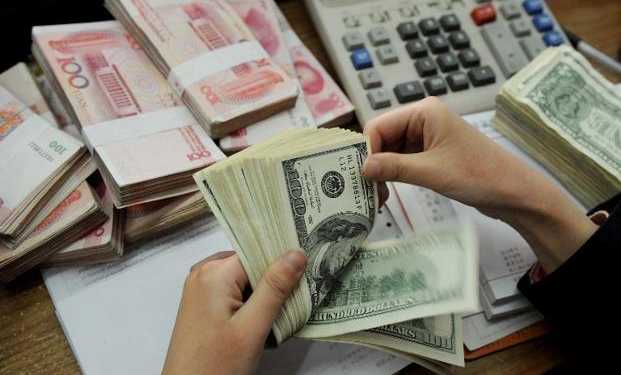A currency war is erupting on the global horizon and everything from oil to investments in share markets are at stake. Currency war, also known as competitive devaluations, is a condition where countries seek to gain a trade advantage over other by causing the exchange rate of their currency to fall in relation to other currencies. In this currency war, China has been accused along with some other countries. U.S. President Donald Trump on Friday accused China and the European Union of “manipulating their currencies and interest rates lower”. Yuan, the currency plunged to its lowest in recent days because US economy performed well which made the dollar stronger. The Chinese central bank made no efforts to stabilize its currency despite sitting on trillions of foreign exchange reserves. There has also been a significant decline in the value of Euro for which European Central Bank policymakers made no efforts.
“The real risk is that we have broad-based unraveling of global trade and currency cooperation, and that is not going to be pretty,” said Jens Nordvig, Wall Street’s top-ranked currency strategist. The currencies of commodity-exporting countries like Russian ruble, Colombian peso, and Malaysian ringgit will hit hard initially and then the disease will spread throughout the world. According to Reuters US Treasury Secretary Steven Mnuchin said, “The U.S. is closely monitoring whether China has manipulated its FX rate. There’s no question that the weakening of the currency creates an unfair advantage for them”. He further said, “We’re going to very carefully review whether they have manipulated the currency”.
In the US treasury’s next semi-annual foreign-exchange policy report it is expected that China will get a currency manipulator tag. The report will come in October. In the previous April report, China did not get the tag although it was criticized sharply. The US has already imposed a tariff on 34 billion of Chinese imports and president Trump threatens to impose more if China does not make efforts to reduce the trade deficit. The Chinese side is expected to respond to this by devaluing its currency as it did in 2015.
Now what stands for India in the global currency war is the real question. Indian exports will cost more due to strong US dollars but at the same time, its imports are expected to become more competitive.
The value of Indian rupee is expected to go down during the currency war but then the Indian economy seems to be largely immune to trade and currency wars to a certain extent due to the following reasons:
The first and foremost reason is that the Indian economy depends on domestic consumption unlike China or other commodity exporting countries. So, the fallout in exports will not affect India because almost two-thirds of India’s GDP is from domestic consumption.
The second reason is that Indian exports are mainly in the service sector with the US as its major importer. So, the trade war which is primarily focused on goods will not impact the Indian economy and the domestic IT industry will benefit due to the rise in the US dollar. So, India is not going to stand on the losing side in the currency war.

























